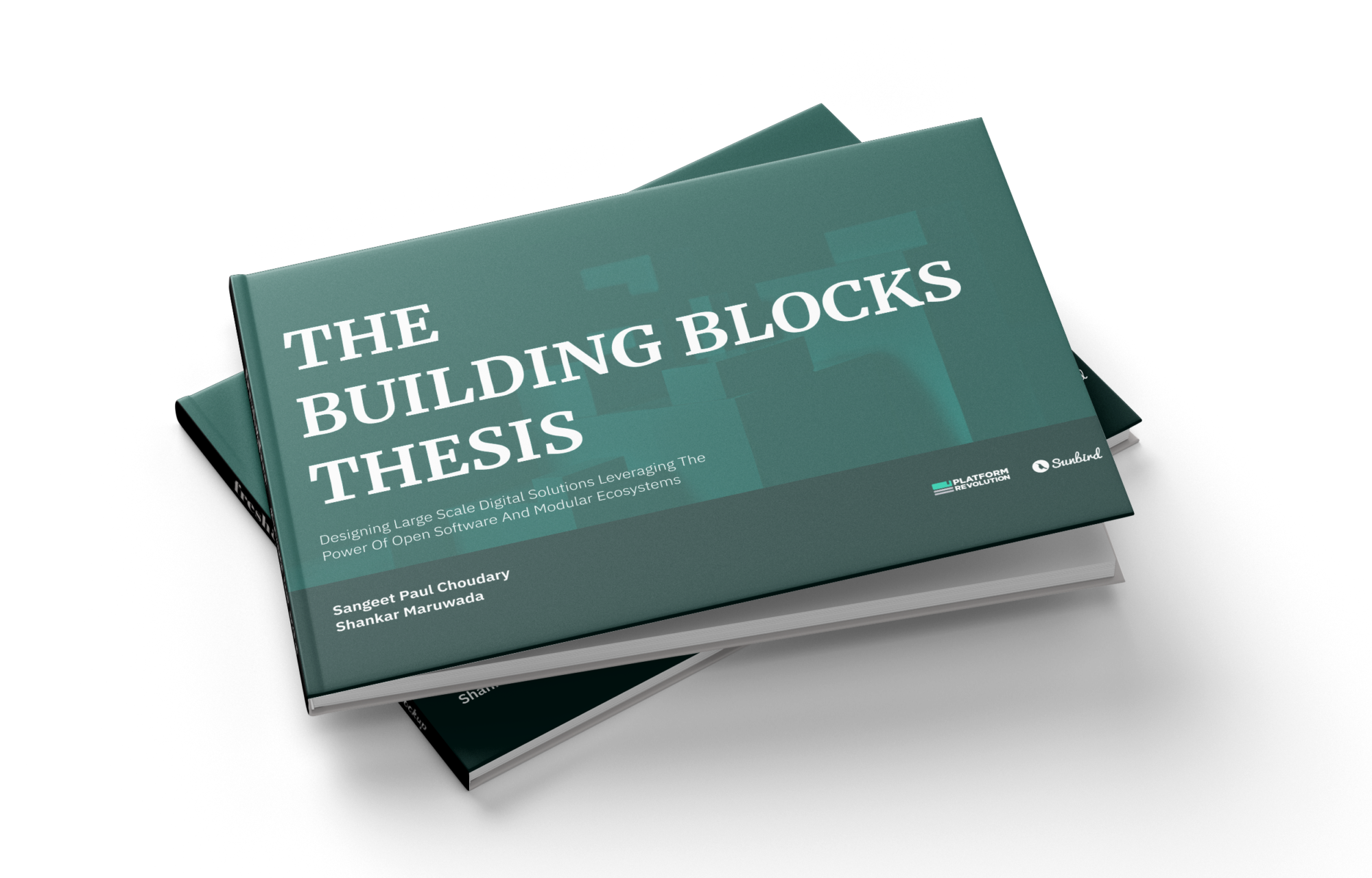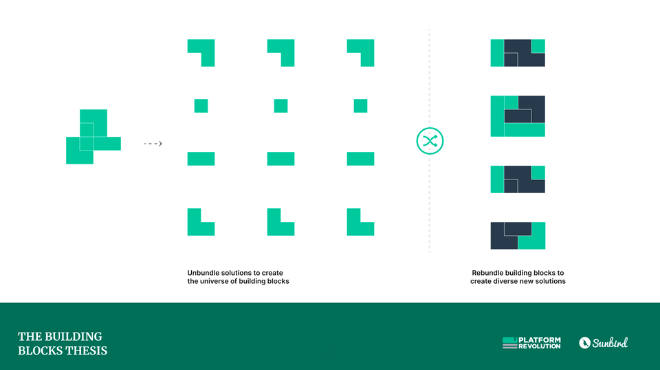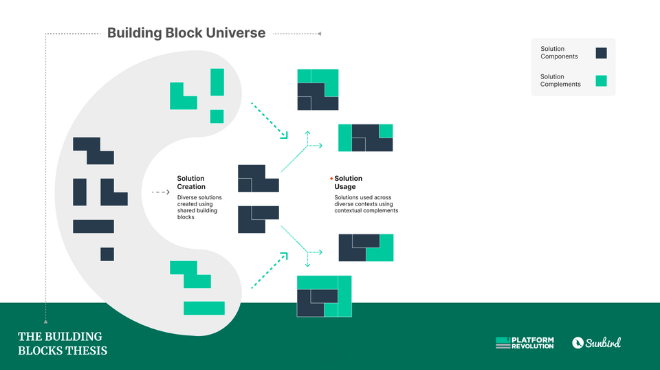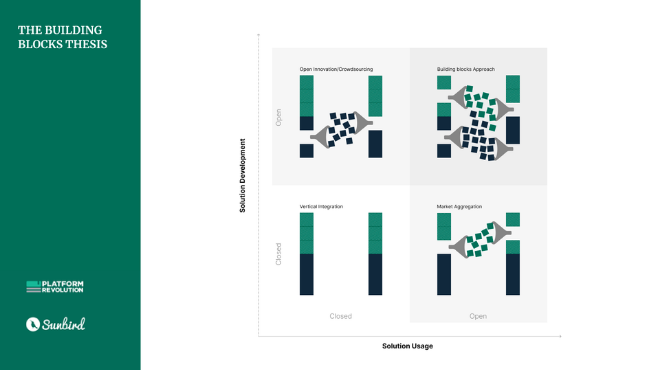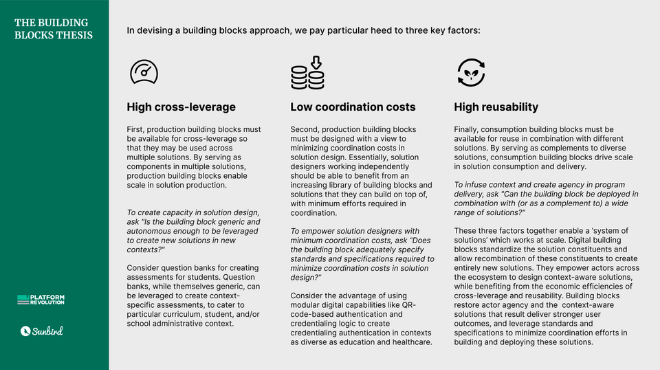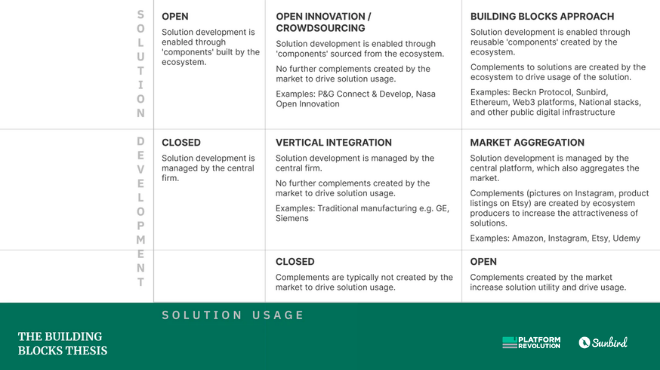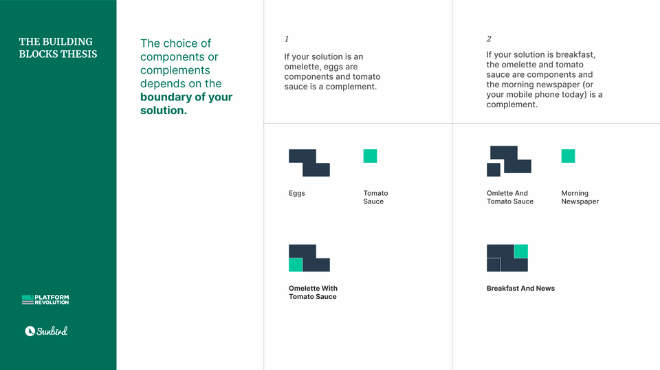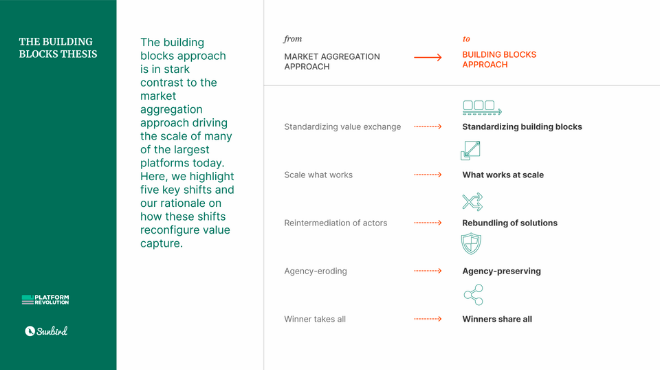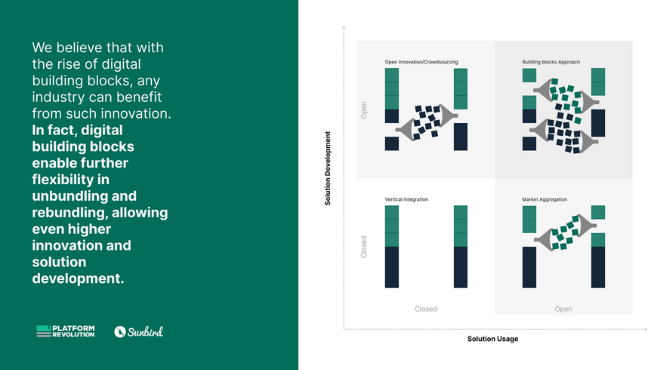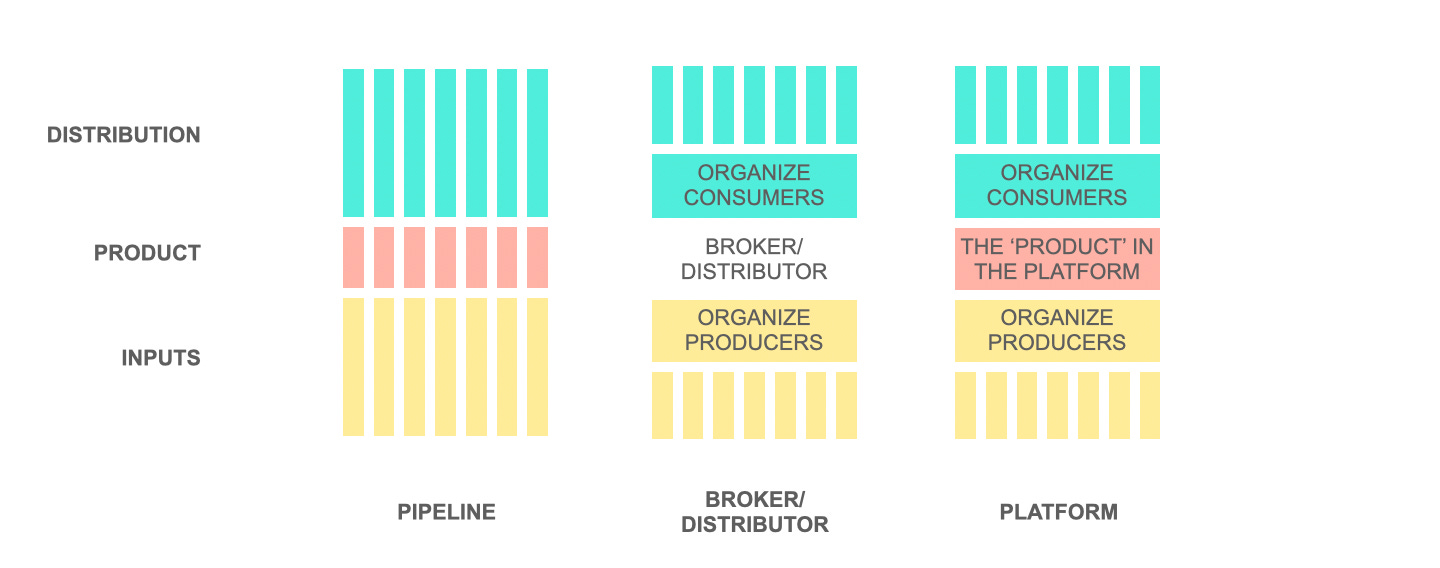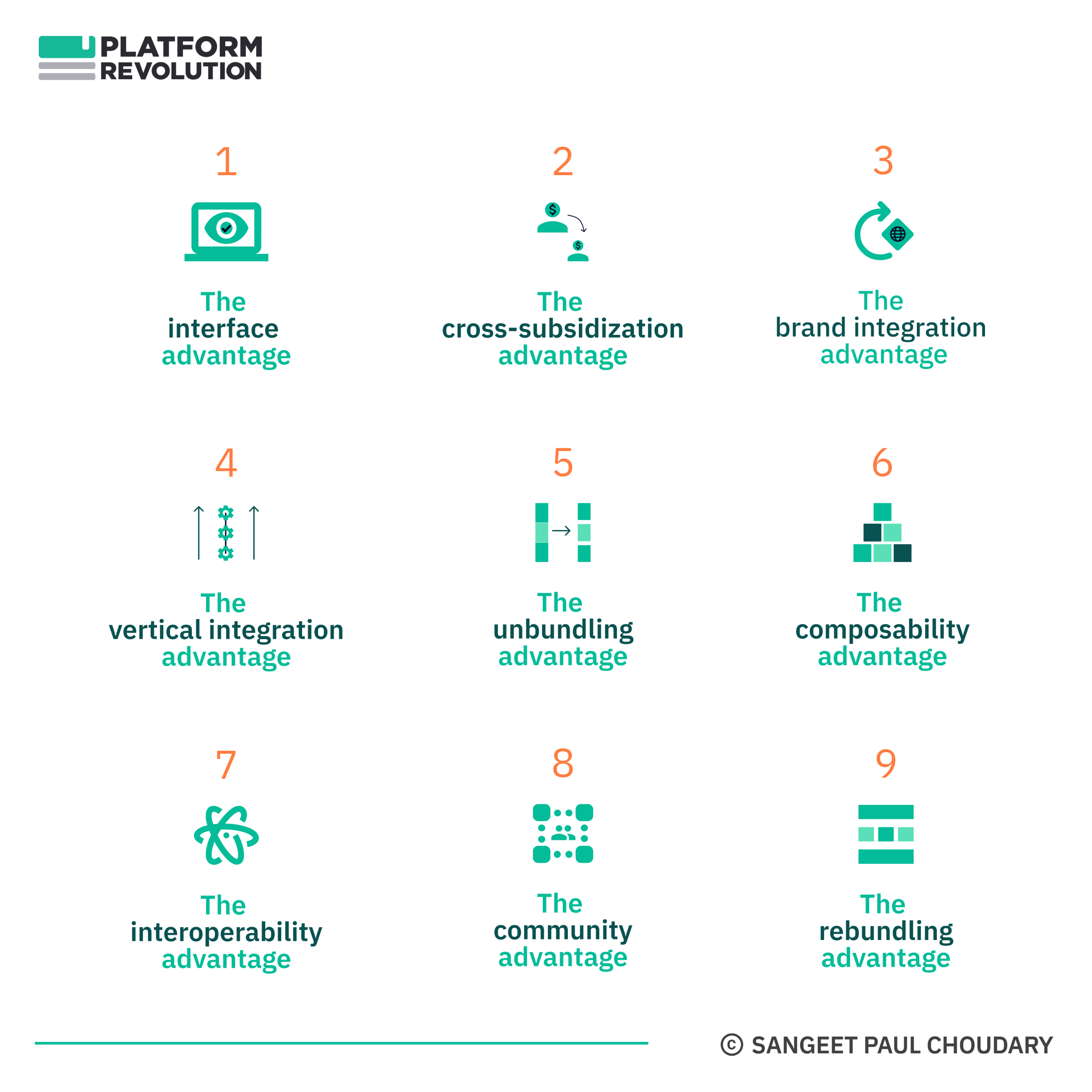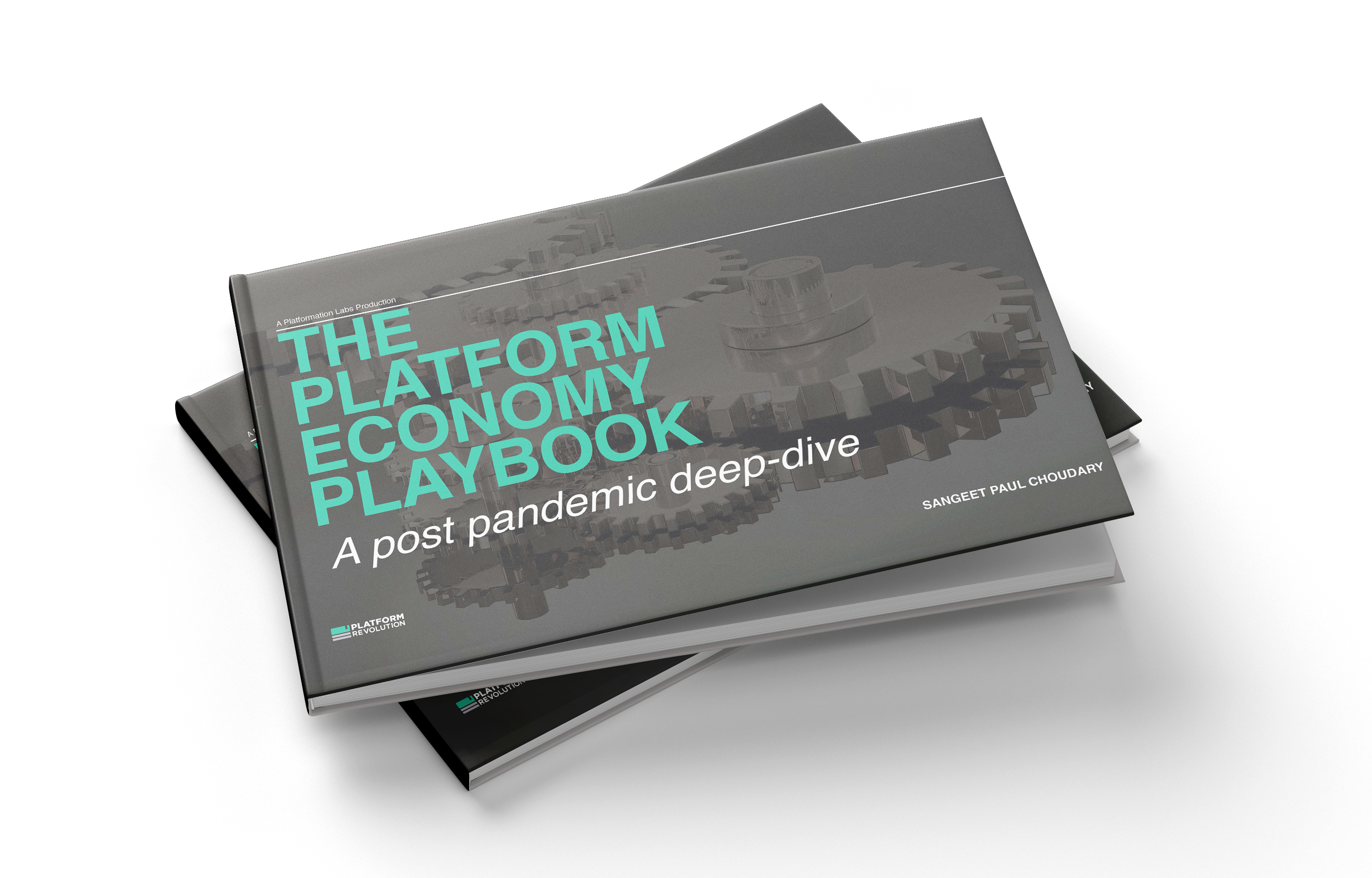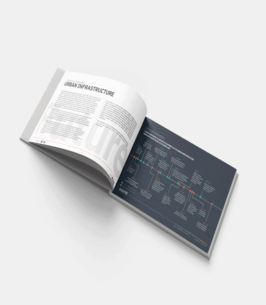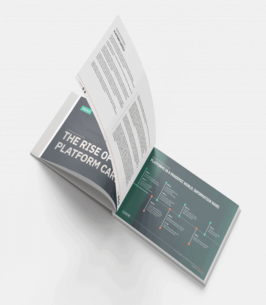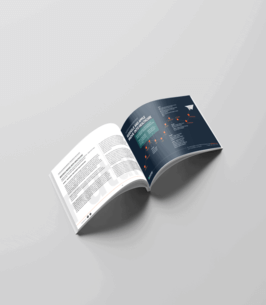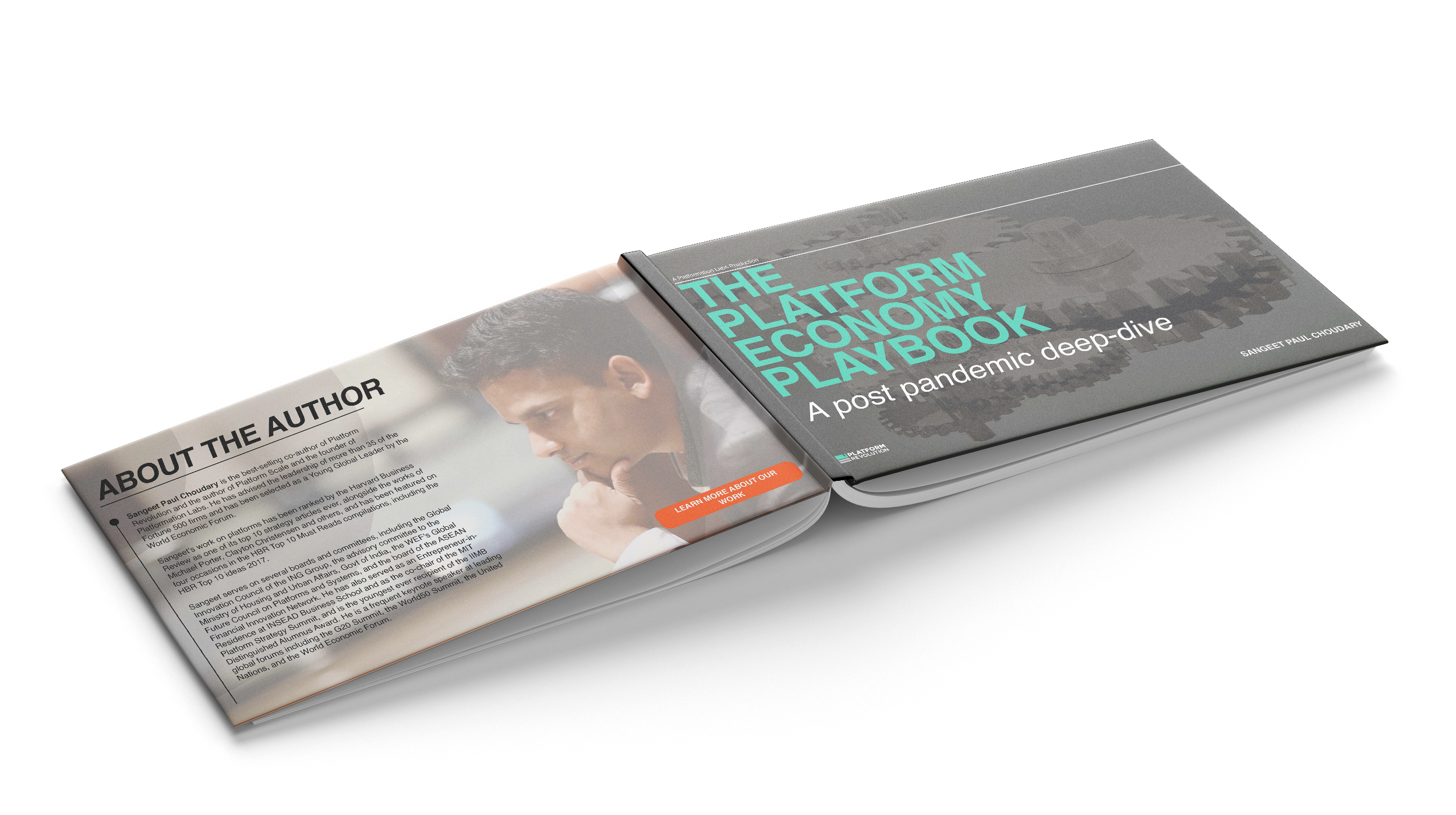Strategy
The Building Blocks Thesis – Deep-Dive Report
Over the past month, we’ve been building out the Building Blocks thesis on this newsletter. I’m thrilled to announce the fully illustrated deep-dive report on the Building Blocks thesis is out.
In Volume One of the Building Blocks thesis, we established the idea as the next generation of open business models.
In Volume Two, we explained how solution builders should strategize their participation in a landscape powered by building blocks, both by leveraging existing building blocks and contributing new building blocks.
In Volume Three, we explained how the building blocks thesis is natively geared towards a less extractive platform economy, while also powering diversity of solution design and usage. We see this in the shift towards Web3 as well as the growing importance of public digital infrastructures and national digital stacks.
In today’s edition, we summarize the key tenets of the thesis and why we believe this is key to understanding future business models.
Read on to recap the key tenets of the thesis and get your copy of the report download the report here
Building Blocks Thesis Report-Sunbird-Platformation Labs
Key tenets of the Building Blocks thesis
1) Solutions are developed and consumed as bundles of value. The building blocks approach unbundles a solution into its core building blocks and re-bundles these blocks into diverse solutions.
2.) A building blocks approach starts with the universe of possible solutions and determines the common fundamental elements that constitute such solutions. It then goes about standardizing these fundamental elements and commoditizing them. This enables an ecosystem of actors who have the agency to ‘build-on’ using these building blocks to deploy solutions across varied contexts. A building blocks approach allows the ecosystem to build context-specific solutions (which preserve individual context) while leveraging standardized solution components (building blocks).
3.) A building blocks approach acknowledges that certain large-scale problems cannot be solved through central solution design and closed innovation. Instead, these problems require distributed solutioning through empowerment of a large and loosely connected ecosystem of actors.
4.) Building blocks should have three key characteristics: They are usable as a component across multiple solutions, they may be combined with complements and existing solutions to create new solution bundles, and builders may benefit from an ever-increasing library of building blocks that all adhere to common standards and specifications.
Centralized platforms have dominated the pre-pandemic world. But with the rise of Web3 and digital public goods, we believe that decentralized platforms - set up as building blocks - will reconfigure future value creation. This thesis lays out the theory, the application, and the implications of this shift.
Feel Free to Share
Download
Our Insights Pack!
- Get more insights into how companies apply platform strategies
- Get early access to implementation criteria
- Get the latest on macro trends and practical frameworks
5.)Digital building blocks are powerful agents of solutioning. Like physical building blocks, they are standardized and modular and may be recombined to create new solutions (think Lego or Tetris). Unlike physical building blocks, they are also (1) reusable owing to near-zero costs of replication, (2) agents of coordination, as standards and specifications enable interoperability and coordination across larger solution systems.
6.) Digital building blocks enable a ‘system of solutions’, that are interoperable and can plug-and-play across each other, enabling a vast and seemingly unconnected ecosystem of solution creators to more effectively coordinate their efforts towards solving large-scale problems through diverse context-rich solutions.
7.) Every solution builder can contribute to the universe of open, public digital building blocks (unbundling), and can leverage existing building blocks to create new solutions (re-bundling). The resultant public library of components and complements create powerful universal network effects across the universe of building blocks, rather than within the boundaries of a particular solution.
8.) Building blocks when deployed as public goods enable shared ownership of solutioning infrastructure, leading to a ‘winners-share-all‘ dynamic. As the ecosystem builds new building blocks, all participants benefit through reuse and cross-leverage. Essentially, the entire lego set wins, not the builder or the sponsor alone, by enabling ‘build-on’, rather than ‘rebuild’.
9.) A building block approach can transform value creation in an increasingly connected, and complex world with rapidly evolving technology and intertwined ecosystems. Much as platforms resolve the scale-choice trade-off and the scale-quality trade-off, a building blocks approach can resolve the scale-context trade-off and the scale-agency trade-off .
The Building Blocks Thesis
And the much anticipated deep-dive is finally out as well.
If you had signed up for the waiting list, you would have already received a copy of the report.
Visit this link to download your copy
In case of any issues in downloading the report, write in to [email protected]
This series is co-authored with Shankar Maruwada, CEO and co-founder of the EkStep Foundation. I am an advisor to the EkStep Foundation.
To learn more, visit www.sunbird.org and www.platformthinkinglabs.com. You may also write to [email protected] or [email protected]
State of the Platform Revolution
The State of the Platform Revolution report covers the key themes in the platform economy in the aftermath of the Covid-19 pandemic.
This annual report, based on Sangeet’s international best-selling book Platform Revolution, highlights the key themes shaping the future of value creation and power structures in the platform economy.
Themes covered in this report have been presented at multiple Fortune 500 board meetings, C-level conclaves, international summits, and policy roundtables.
Subscribe to Our Newsletter



